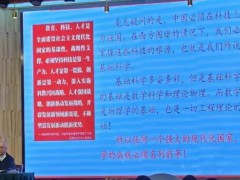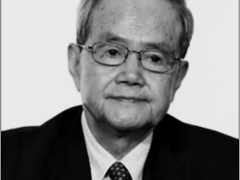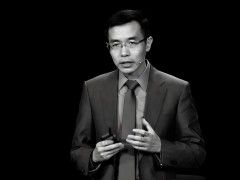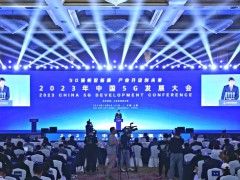Motoyuki Hattori was promising young scholar in Japan, held a position at the nation’s most elite university, and had career prospects that were far more solid than those of his peers.服部素之是一位杰出的日本青年学者,曾在日本最顶尖的大学任职,其职业前景远比同龄人更有前途。
Hattori, now 40, who specializes in structure and function of membrane transporters, wanted to quickly start his own laboratory. And that was possible at Fudan University in Shanghai.现年40岁的服部专攻膜转运蛋白的结构和功能研究,他希望尽快建立个人实验室。在上海复旦大学,他的期望可以化为现实。

“In Japan’s academic culture, it usually takes 10 years or so until post-doctorate researchers can set up their own labs after completing the so-called ‘apprenticeship’ period under professors,” he said in a recent online interview. “I contemplated about what I should do in my 30s, when I was physically and mentally capable of carrying out demanding work. My conclusion was to go overseas.”服部在最近一次线上采访中表示:“在日本学术界中,博士后研究员通常需要10年左右才能完成所谓的教授‘学徒期’,此后才能建立个人实验室。我思考了自己30多岁的人生,那时的身心条件允许我从事高强度工作。因此我的结论是出国。”
A number of Japanese scholars are opting to do research in China mainly because of something that most young workers want: job stability.许多日本学者之所以选择在中国开展科研工作,主要是因为这里可以为大多数年轻学者提供他们想要的:工作稳定性。
To cover costs for personnel and research activities, Japanese national universities and research institutes had long relied on government grants and “competitive research funds,” which are supplied only for planned projects submitted by scientists and approved in a government review.为了支付人员和研究经费,日本国立大学和研究机构长期依赖政府拨款和“竞争性研究基金”,这些资金仅用于科学家提交并经政府审批的计划项目。
But the competitive funds are awarded to projects that last only three to 10 years or so, leading to insecure employment situations.但竞争性基金仅资助持续三至十年左右的项目,这就导致没有保障的聘用期。
Supporters of the shift say the fixed-term project contracts fuel mobility and competition, thus revitalizing scientific research.该体系的支持者表示,固定期项目合同有助于资金流动和竞争,从而振兴科研。
With no guarantee for funding, however, aspiring researchers, particularly those in basic research, may be reluctant to tackle a challenging project while planning their personal lives from a long-term perspective, critics say.然而,批评人士认为,在没有资金保障的情况下,有抱负的研究人员,尤其是从事基础研究的人员,可能不愿意在长远的个人生活规划中选择应对一个具有挑战性的项目。
Hattori said the availability of more secure positions at Chinese universities is the biggest reason Japanese scholars relocate to China.服部说,中国大学提供了更多稳定的机会,这是日本学者涌入的主要原因。
“As far as I know, dozens of young and mid-career Japanese scientists are doing research in this country,” he said. “They left Japan because the bulk of appointments available were fixed-term contracts.”服部说:“据我所知,很多中青年日本科学家正在中国开展科研工作。他们离开日本是因为大部分任职机会都是固定期合同。”
A study by the education ministry’s National Institute of Science and Technology Policy (NISTEP) found that 67.6 percent of postdoctoral researchers at Japanese universities and publicly supported research institutes were working under contracts lasting less than three years in fiscal 2018.日本文部科学省下属国立科学技术政策研究所的一项研究发现,日本大学和公共资助研究机构67.6%的博士后研究员在2018财年的合同期限不到三年。
When he was 32, Hattori was an assistant professor of life sciences under a fixed-term contract at the University of Tokyo. The government-affiliated Japan Science and Technology Agency selected him as a recipient of research grants for promising young scholars.服部32岁在东京大学任生命科学系助理教授,签订了固定期合同。他还获得了日本政府下属日本科学技术振兴机构提供给优秀青年学者的资助。
Fudan University ranks eighth in Asia, one notch above Kyoto University, according to the latest QS World University Rankings by Britain’s Quacquarelli Symonds Ltd.根据最新的英国QS世界大学排名,复旦大学在亚洲排名第八,比京都大学高一名。
Hattori said his Chinese colleagues who landed professorships at Fudan University around the same time as he did were in his generation.服部表示,与他同时获得复旦大学教授职称的中国同事都是他的同龄人。
The big difference, however, is that Hattori is receiving the equivalent of more than 100 million yen over a six-year period for his startup lab.然而,最大的区别在于,六年内,服部刚组建的实验室获得了相当于1亿多日元的资金。
As China’s economy grew, it began accepting more students at universities. The number of college students has grown tenfold over the past 20 years.随着经济飞速发展,中国开始招录更多大学生。在过去20年里,大学生的数量增长了10倍。
For example, the School of Life Sciences at Fudan University where Hattori works has more than doubled its number of professors over a decade.以服部所在的复旦大学生命科学学院为例,在过去十年里,该学院的教授人数翻了一倍多。
Hayato Shimabukuro, 34, gained a Ph.D. in astronomy from Nagoya University, conducted research at the Paris Observatory, and then moved to China’s elite Tsinghua University in Beijing in 2018.34岁的岛袋隼士在名古屋大学获得天文学博士学位,曾在巴黎天文台进行研究,于2018年来到中国顶尖学府清华大学。
In late 2019, he landed his current post of associate research professor of astronomy at Yunnan University’s Southwestern Institute for Astronomy Research, also in China.2019年末,他获得了云南大学中国西南天文研究所天文学副教授职位。
The Japanese science community was both stunned and alarmed when Akira Fujishima, an 80-year-old chemist who is widely regarded as a potential Japanese Nobel laureate for his photocatalysis studies, relocated to China with his research team last year.80岁的化学家藤岛昭因其在光催化领域的研究而被视为有潜力获得诺贝尔奖的日本学者,去年他和研究团队迁至中国,此举震惊日本科学界。
Fujishima, a former president of the Tokyo University of Science, accepted a full-time position at the University of Shanghai for Science and Technology.藤岛曾任东京理科大学校长,现在他接受了上海理工大学提供的全职职位。
Observers said Fujishima and his team were looking for an education facility where they could continue their studies—and that school was located in China.评论人士称,藤岛和他的团队正在寻找一个可以继续研究的高校环境,而这所学校就在中国。
The NISTEP’s “Japanese Science and Technology Indicators 2022” report showed that between 2018 and 2020, China ranked No. 1 globally in terms of the number of papers it published in science and engineering journals around the world.日本国立科学技术政策研究所发布的《科学技术指标2022》报告显示,2018年至2020年,中国在全球科学与工程期刊上发表的论文数量排名世界第一。
China also placed at the top both in its share of papers in the top 10 percent and the top 1 percent by number of citations in such publications over the same period.同期,中国在此类出版物中的论文引用数量分别位居全球前10%和前1%。
Hattori noted that the Chinese government has increased support to regional universities to raise academic standards across the country.服部指出,中国政府加大了对地方大学的支持力度,以提高全国的学术水平。
“It is essential for progress in science to have large numbers of scholars and to have them in broader areas,” he said. “It is the same as a mountain. The higher a mountain is, the larger its foundation is.”服部说:“拥有大量的学者,并且让学者们在更广泛的领域开展研究,这对于科学进步是至关重要的。就好比一座山,山越高,山底的基石越庞大。”









